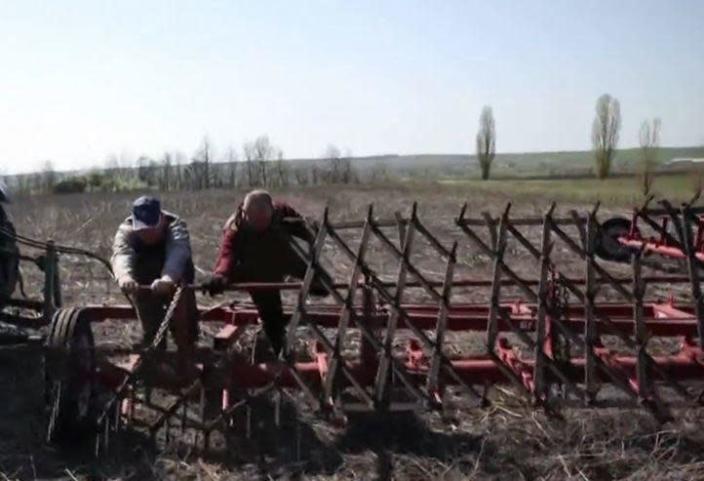Odesa, Ukraine — A senior official in eastern Ukraine says Russia is sending more troops into the country in a bid to capture another key city. The governor of the Luhansk region, in Ukraine’s eastern industrial heartland of Donbas, says Ukrainian forces are having more and more trouble keeping the Russian forces at bay. President Volodymyr Zelenskyy has said that Russian forces now control 20% of his country — a vast swath of the east, along Russia’s border.
But Russia’s troops aren’t only squeezing Ukraine by land, they are also cutting off its access to the sea, and as Ukraine has long been dubbed the breadbasket of Europe, that blockade is causing global food shortages.
CBS News correspondent Chris Livesay has been in Odesa, the once thriving seaport where the food crisis is coming to a head. More than 20 million tons of grain are stuck on the city’s coast.
President Zelenskyy has said the mountain of stalled food could triple in size by this fall unless the Russian forces’ blockade of the city ends.
On Monday, Russia’s envoy to the United Nations stormed out of a Security Council meeting in New York as European Commission President Charles Michel lambasted his country for “using food supplies as a stealth missile against developing countries.”
Much of the humanitarian food aid distributed in crisis and conflict zones had come from Ukraine before the Russian invasion began in February. Ukraine has long provided wheat and corn to some of the neediest populations in the world.
Now, Livesay says many of the nation’s wheat fields have been reduced to minefields, or active battlefields.
Those brave enough to continue working the land are risking their lives so others can eat.


But the flow of food out of Ukraine has been cut to a trickle by Russia’s invasion by land and its blockade by sea.
The best way to beat that multi-fronted attack, according to Zelenskyy, is with advanced missile systems, like those currently on their way from the United States. The Ukrainian leader says the heavy weaponry could be used to enable safe passage for shipping through the Black Sea. “I only believe that as soon as we get these systems, it will be the most powerful guarantee” he said.
Russian ships aren’t the only threat to Odesa. There are also mines — mostly Russian, but Ukrainian, too. They’ve been laid to protect the city, Captain Natalia Humeniuk told Livesay, as “the danger of a Russian amphibious assault on Odesa is still very real.”
She accused Russia of framing her country by using old Ukrainian mines that Putin’s forces captured when Moscow annexed the Crimean Peninsula in 2014 to block the passage of food shipments now.
As fears mount of a worsening global food crisis, France’s government has urged the world to find a so-called off-ramp for Putin to end his disastrous war — one that would avoid humiliating the Russian president. Humeniuk isn’t convinced that’s still a viable option.
“It’s impossible for Putin to humiliate himself or his country more than he already has,” she told CBS News.
U.S. Secretary of State Antony Blinken has called Russia’s food blockade “blackmail,” and accused Moscow of stealing the grain to sell for its own profit.
Farmers in southern Ukraine have told Livesay the Russian invaders aren’t just stealing their grain, but their equipment as well.
Rep. David Cicilline on gun laws: “I hope the Republicans in the Senate won’t stand in the way”
Pressure mounts on Congress to take action on gun control
British Prime Minister Boris Johnson survives no-confidence vote




